The University of Edinburgh at COP25
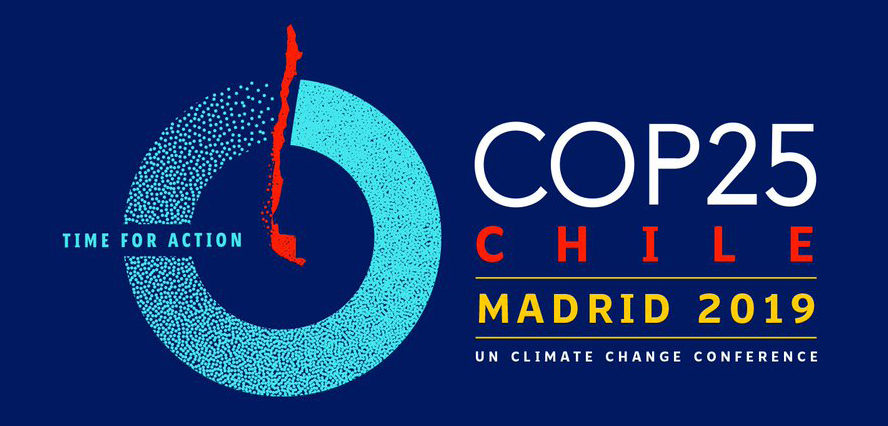
The United Nations’ annual Climate Change Conference – this year called COP 25 – takes place in Madrid from 2nd – 13th December 2019. During it, governments will hear about the impacts of climate change, propose crucial next steps to reduce their carbon emissions, and discuss how the entire human population can transition to a low carbon society in a fair and just way.
Find out how staff, students, alumni and affiliates of the University of Edinburgh are contributing to the conference… and in doing so, making the world a better place.
Are you at COP25 and not featured below? Email us at srs.department@ed.ac.uk to be included.
Staff
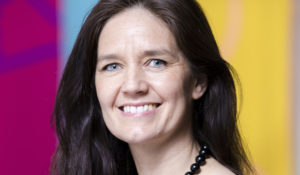 Dr Soledad Garcia Ferrari
Dr Soledad Garcia Ferrari
International Dean for Latin America; Director of the Centre for Latin American Studies; Senior Lecturer in Architecture
Twitter: @sgferrar
Dr Soledad Garcia Ferrari leads a University-wide project to understand the political, regulatory, social, economic and environmental context of the Galápagos Islands for the supply, access and security of energy resources. On day one of the conference, she presented at an event to launch the Galapagos Islands 2040 vision: a plan to create a secure, sustainable low carbon island economy driven by innovation and collaboration.
Experts from across the University are contributing to this collaboration, aimed at achieving net-zero carbon in Galapagos.
Find out more about Dr Soledad Garcia Ferrari
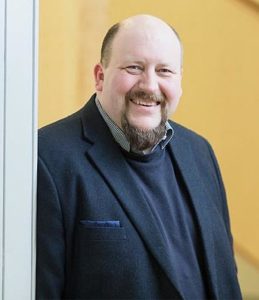 Ed Craig
Ed Craig
Executive Director, Edinburgh Centre for Carbon Innovation
Twitter: @edcraigecci
Ed provides low-carbon expertise for the Galapagos Islands 2040 vision and had the privilege of announcing this at the conference. Ecuador (of which Galapagos is a Province) will create an Energy Innovation Centre based in the Galapagos Islands using expertise from Ed and the work of the Edinburgh Centre for Carbon Innovation.
Find out more about Ed Craig
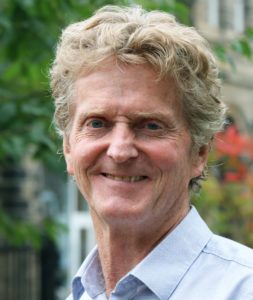 Professor Sandy Tudhope
Professor Sandy Tudhope
University Lead on Climate Responsibility and Sustainability; Co-Director of Edinburgh Ocean Leaders Programme; Professor of Climate Studies
Twitter: @EdOceanLeaders
Sandy is attending COP25 to present the Galapagos Islands 2040 vision and also to showcase the University’s new Edinburgh Ocean Leaders Programme. We asked him to tell us more about these two projects.
“This is the first time I have attended a UN COP event. It is both exhilarating and sobering; so much rides on the success of this and future climate change negotiations. I am here mostly in my new role as University Lead on Climate Responsibility and Sustainability, but also as a researcher and educator actively engaged in the science and impacts of climate change.
“So far, I have participated in presenting two initiatives with other University of Edinburgh colleagues. The first was in support of a growing collaboration with the Government of Ecuador on work to support the Galapagos Islands in its ambition for a socially just transition to a low carbon economy. For this event, the University of Edinburgh’s team was skilfully led by Sole Garcia-Ferrari, and the Ecuador team by Norman Wray, the engaged and dynamic Minister for Galapagos. Ed Craig and I were support acts! The format was a panel discussion and presentation of ideas and aspirations, followed by questions from the audience. This immediately led to some very positive follow-up discussions on next steps.
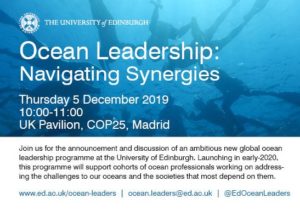 “The second event was with Meriwether Wilson, where we introduced the new Edinburgh Ocean Leaders Programme. Following a brief verbal presentation from us, we split the attendees into breakout groups to discuss how different forms of leadership can be empowered to effect positive changes at scale, and how this might influence how we grow and develop the Ocean Leaders programme. We had great engagement from our really diverse attendees, representing all career stages from students to chief executives, and from a wide range of countries and sectors. Some excellent ideas, perspective and new contacts.
“The second event was with Meriwether Wilson, where we introduced the new Edinburgh Ocean Leaders Programme. Following a brief verbal presentation from us, we split the attendees into breakout groups to discuss how different forms of leadership can be empowered to effect positive changes at scale, and how this might influence how we grow and develop the Ocean Leaders programme. We had great engagement from our really diverse attendees, representing all career stages from students to chief executives, and from a wide range of countries and sectors. Some excellent ideas, perspective and new contacts.
“In addition to these formal presentations, I’ve thoroughly enjoyed attending a wide range of meetings, from highly formal negotiation meetings (where as official Observers we can attend but cannot contribute), to wonderfully engaged events at the Pacific Island and New Zealand ‘Moana Blue Pacific Pavilion’, to even more informal events and stalls in the ‘Green Zone’ where the public can participate. It was great to see Ambassador Peter Thomson, UN Special Envoy for the Ocean, name-checking the University of Edinburgh in his presentation on Pacific climate change, referring to us as the sort of organisation that can deliver the science needed for the UN Decade of Ocean Science for Sustainable Development.
“However, for me, the negotiation meetings have been especially fascinating; watching diplomacy and national positioning operating in real time. We saw some highly skilled interventions; mostly constructive but some appearing less helpful (and I won’t name the nations involved!). It reinforced to me the scale of the political challenge of achieving consensus across all (or nearly all) nations on targets and timescales requiring large scale change in behaviour. I can only hope that the urgency of the environmental crisis focuses minds and hearts of national representatives and Heads of State, and COP25 results in tangible progress towards meeting the Paris Agreement goals.
“Next stop: COP26 in Glasgow next year. COP26, jointly hosted by the UK and Italy, is likely to be an even more important milestone, when we see how close we (the international community) is to taking the necessary steps to limit man-made climate change to 1.5 – 2°C.
“The experience of being in Madrid is helping me get some ideas on the ways in which Universities like ours can and should support the UN-COP process. I look forward to taking up this discussion with colleagues on our return.”
Find out more about Professor Sandy Tudhope
Find out more about the Edinburgh Ocean Leaders Programme
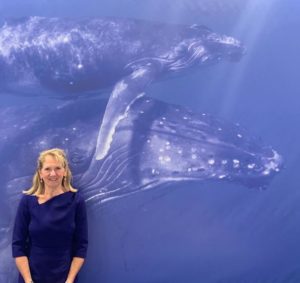 Meriwether Wilson
Meriwether Wilson
Co-Director of Edinburgh Ocean Leaders Programme; Senior Lecturer in Marine Science and Policy
Twitter: @EdOceanLeaders
“I am attending COP 25 out of a long-standing passion for ocean conservation, and as part of my professional and academic career working on ocean issues and climate connections. I am in the School of GeoSciences as a Senior Lecturer in Marine Science and Policy, primarily focusing on marine conservation and in particular climate adaptation for small island communities and large ocean states.
“It is this focus on small island states that I am following throughout the COP. On Thursday 5th of December, myself and Professor Sandy Tudhope had a dynamic and well attended event, invited and hosted by the UK Pavilion on the new Edinburgh Ocean Leaders Programme we are launching this year with support from the University and a major international donor.
“Here at COP25, the range of issues, processes and voices are amazing… ranging from traditional songs by the Pacific Island community to formal negotiations by countries on challenging issues, e.g. trying to agree on processes to report air and shipping emissions. Other events – from the high-level to the informal – are alive with conversations and knowledge on ocean-climate connections. There is a positive energy around the country-hosted pavilions and side events that suggest a turn in the “climate discourse” towards a spirit of solution seeking, and alignment of opportunities, ranging from expanding marine conservation targets to 30% of the ocean, to technology entry points around energy and plastics. This all bodes very well for the University and Scotland in Glasgow in 2020!”
Find out more about the Edinburgh Ocean Leaders Programme
 Dr Kirsteen Shields
Dr Kirsteen Shields
Lecturer in International Law and Food Security
Twitter: @DrKirsteen
“I have a long standing interest in human rights and land rights in South America; I have been supporting the Galapagos partnership broadly, and was in Ecuador on a research trip earlier to meet local land governance experts.
“Secondly, I’ve been at the Food Systems Dialogues led by David Nabarro – Special representative of the United Nations Secretary-General for food security and nutrition between 2009 and 2017 and winner of the World Food Prize 2018 – and at the Roundtable on Agrifood Chains. Nabarro will be coming to Edinburgh to give a lecture on January 30th hosted by the Global Academy of Agriculture and Food Security in collaboration with FRIED.
“I’ve also been attending meetings on the IPCC Special Report on Climate Change and Land, following negotiations in relation to Article 6 of the Paris Agreement on carbon trading, and working out how UN COP works ahead of COP 26 which will be held in Glasgow next year. “
Find out more about Dr Kirsteen Sheilds
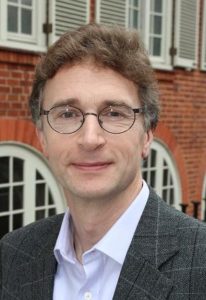 Professor Andrew Millar
Professor Andrew Millar
Chair of Systems Biology; Business Owner of University Research Data Service; Chief Scientific Advisor for the Scottish Government on the Environment, Natural Resources and Agriculture
Twitter: @A_J_Millar
Professor Millar is seconded from the University to the Scottish Government part-time, and is attending COP25 as their Chief Scientific Adviser for the Environment, Natural Resources and Agriculture. His roles as CSA includes support for the best use of robust evidence in policymaking, and an ambassadorial role in promoting Scottish science within his remit.
Find out more about Professor Andrew Millar
Find out more about Professor Andrew Millar’s secondment to the Scottish Government
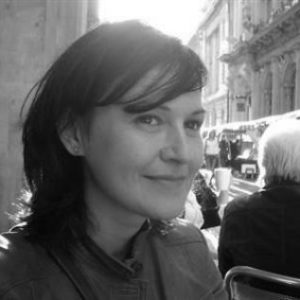 Dr Kirsty Crocket
Dr Kirsty Crocket
Science Coordinator, NERC Changing Arctic Ocean research programme
School of GeoSciences
Twitter: @KirstyCrock; @NERC_CAO
Dr Kirsty Crocket coordinates the 5-year (2017-2022) “Changing Arctic Ocean” scientific research programme. The programme focuses on understanding and quantifying climate change impacts to Arctic Ocean biology, ecosystems and biogeochemistry. It has dual national funding of £20 million from the UKRI Natural Environment Research Council (NERC) and the German Federal Ministry of Education and Research (BMBF).
On Wednesday 4 December, Kirsty presented an overview of the Changing Arctic Ocean research programme in the side event “Ocean, CO2 and Society: Challenges, opportunities and science responses for seas and society.” This side event was led by Dr Carol Turley OBE (Plymouth Marine Laboratory) and hosted by the UK Pavilion.
On Friday 6 December, Kirsty chaired a side event on the “Changing Arctic Ocean” hosted by the Cryosphere Pavilion. The side event presented the scientific evidence of change to the Arctic Ocean, and the implications of this change to ecosystem services, with discussion of the policy response.
Find out more about Dr Kirsty Crocket
Students
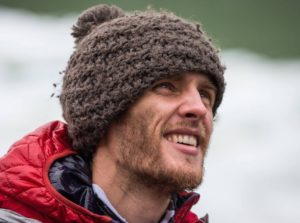 Matt Maynard
Matt Maynard
3rd year online student in Carbon Management; Founder, EarthRise Productions; Journalist and Photographer covering COP25
Twitter: @MattNMaynard
Matt is based in the Chilean Andes above Santiago where he works as a journalist and photographer covering climate, Andean mountain and social justice stories. He was going to be attending COP25 with the Edinburgh delegation but following the change of host country to Madrid due to social and pro-democracy protests in the country, he is reporting remotely for Geographical magazine. His articles on COP25 go live from Friday 6th December 2019.
Find out more about Matt Maynard
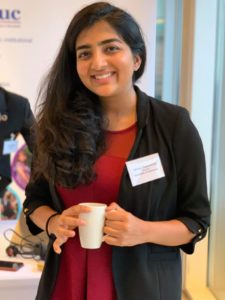 Dhruti Chakravarthi
Dhruti Chakravarthi
3rd year student on the MA (Hons) Sustainable Development (Social Anthropology pathway) course; nominated by the Stockholm Environment Institute as an observer.
“As we enter a new decade, the defining year of 2020 for our fragile blue planet, COP25 is the final summit where implementation strategies will be discussed. As a student of sustainable development and social anthropology, but more importantly as a young human on this planet, the deliberations at COP will define the future ahead of me. Whilst nations are far from achieving their goals and expected societal transformation in the short window of opportunity left, strong intergenerational and cross-cultural perspectives are substantial in not only achieving our immediate tasks but carrying forward the legacy of 4.5 billion years of life.”
Alumni
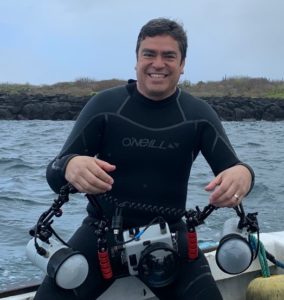 Maximiliano Bello
Maximiliano Bello
COP25 Presidential Commissioner for Chile; Advisor, Edinburgh Ocean Leaders Programme; Senior Officer, Pew Charitable Trusts
MSc Natural Resources Management, 2006
Twitter: @max_bello_m
Maximiliano has a leading role in the organisation of COP25 and is a member of the Advisory Panel for the Edinburgh Ocean Leaders programme. He has pushed for a ‘Blue COP’, or an increased focus on ocean health and ocean carbon sequestration.
“I am an international marine environmentalist. I did my MSc at the University in Natural Resources Management between 2005 and 2006. I am currently at the CoP25 or also called BlueCoP as part of the Presidential Advisory Council of Chile. I have been involved in the creation of extensive marine protected areas in Chile which now account to the 41% of total protection of the EEZ. We want to bring attention to the ocean and the link with climate change, by highlighting the role and also the threats it is suffering from inaction. The ocean is not only the source of life for this planet but is the mayor regulator of climate in the world. The ocean has been buying us time, but for how long? The effects are clear and will become life threatening for the entire humanity. Join me to talk several solutions, new studies while we keep urging the world to act, as fast as possible, time to act!”
Find out more about alumnus Maximiliano Bello
Find out more about Maximiliano’s work to create a “Blue COP”
 Rodrigo Céspedes Sotomayor
Rodrigo Céspedes Sotomayor
Public Organizations and Universities Content Manager, COP25; Professor of Sustainability and Environment, Universidad Santo Tomás; Co-Founder, Antügen Itda
Msc Carbon Management, 2013
Twitter: @elcepere
“I’ll be coordinating events in the Chilean pavilion, Chilean events in the Green Zone and Local Governments events. My official position in the COP25 presidency is “Climate Action in Public Sector and Higher Education Institutions Senior Coordinator”, which basically supports non-state stakeholder engagement processes and will formulate a strategy for their involvement and participation by assembling information from local governments, ministries and any other public entity about their climate action strategies, as well as Higher Education Institutions (IES in Spanish), such as Universities or Technical Schools. It would also provide in-session coordination, engagement with different Parties and provide upfront workshops on mediation, facilitation and substantive issues for the Presidency team and support the outreach and mobilization of climate action and ambition of parties. This position was considered from the start, but it now includes the IES as well as the public sector.”
Find out more about Rodrigo Céspedes Sotomayor
Affiliates
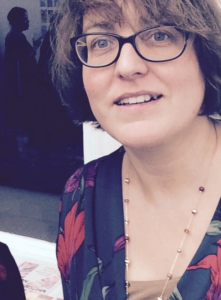 Rebecca Bell
Rebecca Bell
Research and Policy Officer, Scottish Carbon Capture & Storage (based at the Edinburgh Centre for Carbon Innovation)
Twitter: @MissBecsBell
“I am the policy and research officer for Scottish Carbon Capture & Storage (SCCS), a research partnership of five universities, including the University of Edinburgh. I’m going to COP as part of the CCSA (the UK carbon capture storage (CCS) trade association) delegation, so I’ll be hoping mostly to attend events on industrial decarbonisation and negative emissions technologies, and to make contacts with NGOs, trades unions, other research institutions, and anyone else interested in reducing emissions from hard-to-treat sources.
“CCS is a set of technologies for reducing emissions by capturing CO₂ at source (for example from an industrial process such as cement or steel manufacture) and then transporting and securely and permanently storing it in geological formations. The IPCC has identified CCS as a crucial technology for keeping below 1.5°C: as well as enabling the manufacture of crucial materials for building renewable power generating equipment, it allows the bulk production of hydrogen, which is zero carbon when it is burnt, and so can be used for heat or transport; and it allows ‘negative emissions’ through the use of biomass, which means that emissions that can’t be reduced in any other way (for example from farming) can be offset.
“As well as making connections in the CCS world, I’m on a bit of a fact-finding mission to understand how UNFCCC COPs work. Since next year’s will be in Glasgow, I think it’s important to get a feel for what works, and how it works, so we can know how best to engage next year, and what kinds of events and activities would be useful. I‘m hoping to share what I pick up with others in both SCCS and Edinburgh University who are interested in getting involved with COP 26.
Find out more about Rebecca Bell
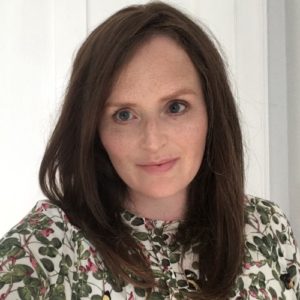 Anna Beswick
Anna Beswick
Programme Manager, Adaptation Scotland (based at the Edinburgh Centre for Carbon Innovation)
Twitter: @AnnaBeswick
“Adaptation Scotland is a programme funded by the Scottish Government and delivered by Sniffer. We’re hosting two COP25 side events in the UK Pavilion on Friday 6th December. The first on Climate Ready Places showcases Scotland’s approach to place-based adaptation, in particular looking at our world leading Climate Ready Clyde programme. The second event is about the importance of leadership in setting Scotland on course for being resilient to climate change. We are presenting this with Scottish Government and the Government of Ireland. We want to be there not only to make the case for adaptation to climate change but to hopefully inspire others. The Global Centre for Adaptation described Scotland as having “staked a place at the forefront of climate-adaptation strategy” so we’ll hopefully be able to give our audience an insight into why they said that.”
Find out more about Anna Beswick
Compiled by Sarah Ford-Hutchinson, Communication Manager, Department for Social Responsibility and Sustainability.
Are you connected to the University of Edinburgh, at COP25 and not featured here? Email us at srs.department@ed.ac.uk to be included.





This is a great blog post! Brilliant to learn about the students
and professors contributing to the conference – everyone brings
something unique to the table. Dr Kirsty Crocket’s research sounds
very interesting, as well as important!